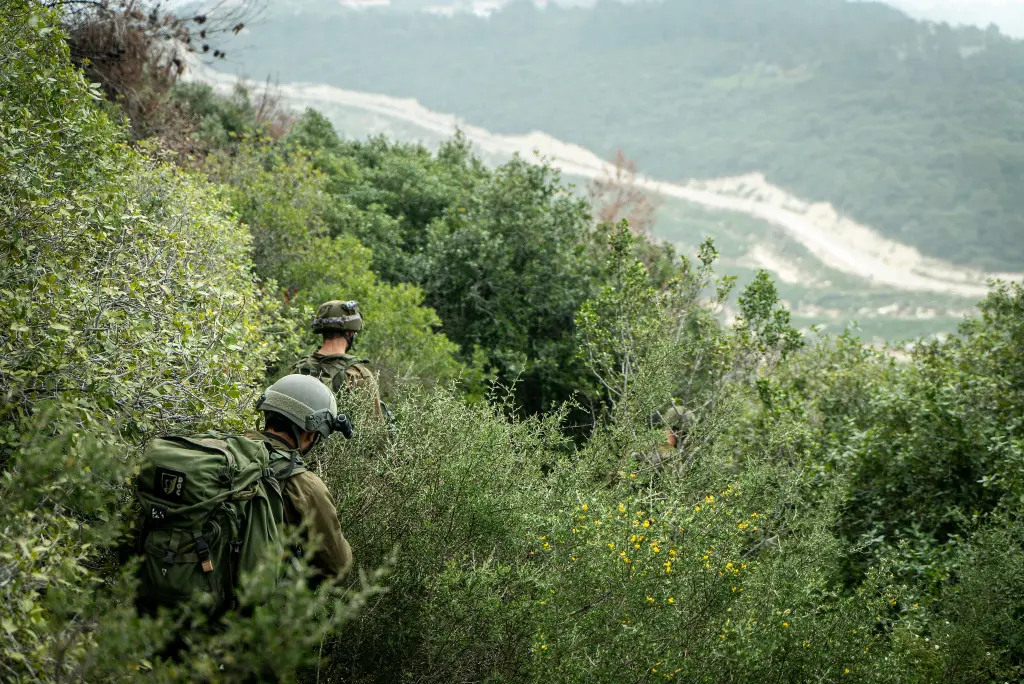As Israel and Hamas enter a four-day pause in fighting, with a preliminary exchange of 50 Israeli hostages for 150 Palestinian prisoners, the situation remains tense with each side keeping fingers on the trigger in case the other side violates the truce.
With everyone’s focus on the south, it would be a mistake to ignore what is happening on Israel’s northern border where it is engaged in a tit-for-tat exchange with Hezbollah.
Hezbollah last fought a major war with Israel in 2006. Courtney McBride and Dana Khraiche note in Bloomberg that since 2012, when it turned its attention to helping Syrian President Bashar al-Assad prevail against rebels, Israelis know that the day would come when Hezbollah would again turn their focus to Israel — and point their stockpile of 150,000 rockets, some with precision guided capabilities at the Jewish state. Since the Hamas attack against civilian communities on Oct. 7, Hezbollah has joined in the fight and launched sporadic missile, mortar and rocket strikes on northern Israel, but both sides have held back from full-scale war.
To this end, Hezbollah claims that through sporadic attacks, it assists Hamas and the war in Gaza by distracting the Israel Defense Forces and preventing them from focusing fully on the southern front.
On Thursday alone, Hezbollah fired more than 50 rockets, including 48 Katyushas, at Israel after an Israeli airstrike on a home in southern Lebanon killed five of the group’s senior fighters. The deaths bring the number of Hezbollah fighters who have been killed in seven weeks of fighting to at least 83.
Nearly two months into the conflict, as Israel now controls almost the entire northern part of Gaza, and as it has promised to continue to move south and attack Hamas in Khan Younis and elsewhere until it eradicates the group completely, military analysts are questioning whether Hezbollah will join the war in full force to save Hamas and prevent the eradication of its leaders in Gaza.
But there are reasons Hezbollah has yet to launch a full-scale attack on Israel.
As McBride and Kraiche further note, Hezbollah is considered to be Iran’s “most precious asset for projecting its influence and frustrating US interests in the region. That asset could be severely depleted in a prolonged conflict. There’s a domestic risk for Hezbollah too, because Lebanon’s economy has been in dire straits since a financial meltdown in 2019 and almost three-quarters of the population now lives in poverty. Hezbollah has a hard core of support there, but it’s also made many enemies inside Lebanon – and it could alienate even more people if it’s seen as dragging the country into someone else’s war.”
At the same time, as AP reported, Iran-backed factions in Iraq, including Kataib Hezbollah, another terrorist group linked to the Lebanese Hezbollah, have carried out more than 60 rocket or suicide drone attacks against bases housing U.S. troops in Iraq and Syria.
These attacks are directed by Iran and are intended to deter the U.S. from joining the war or using its military assets in the region to get more involved than it already is.
Iran’s intended encirclement of Israel is important to understand as well. With Hezbollah in the north, Hamas in the west and the Houthi in the south, Israel is surrounded by Iranian proxies bent on its destruction. While Hamas is willing to sacrifice the Palestinians to achieve its goals, and Hezbollah seems willing to sacrifice Hamas for its goals, it is unclear whether Iran wants to sacrifice Hezbollah, its strongest asset in the Middle East outside its borders.
For now, it appears Iran is satisfied with Hezbollah’s sporadic exchanges of rocket and artillery fire with Israel. It is unlikely Iran will instruct Hezbollah to enter into full-scale war with Israel. More likely, Iran is saving Hezbollah as a strategic asset for the likely moment that Israel attacks Iran and its nuclear installations. If and when this occurs, Iran will want to distract Israel and using Hezbollah to attack Israel in full force is the strategy Iran is relying on.
For this reason, it is unlikely at this stage that Hezbollah will join Hamas’ war against Israel and will remain satisfied helping on the sidelines by distracting it in the north just enough to require the IDF to maintain a large and expensive military presence there. By showering Israel only with occasional missiles and mortars, Hezbollah understands Israel will not retaliate in full force. For now, Hezbollah intends to act only as a thorn in Israel’s side – until the day it is needed by Iran to launch an all-out war against Israel. That day may come sooner than we think.
